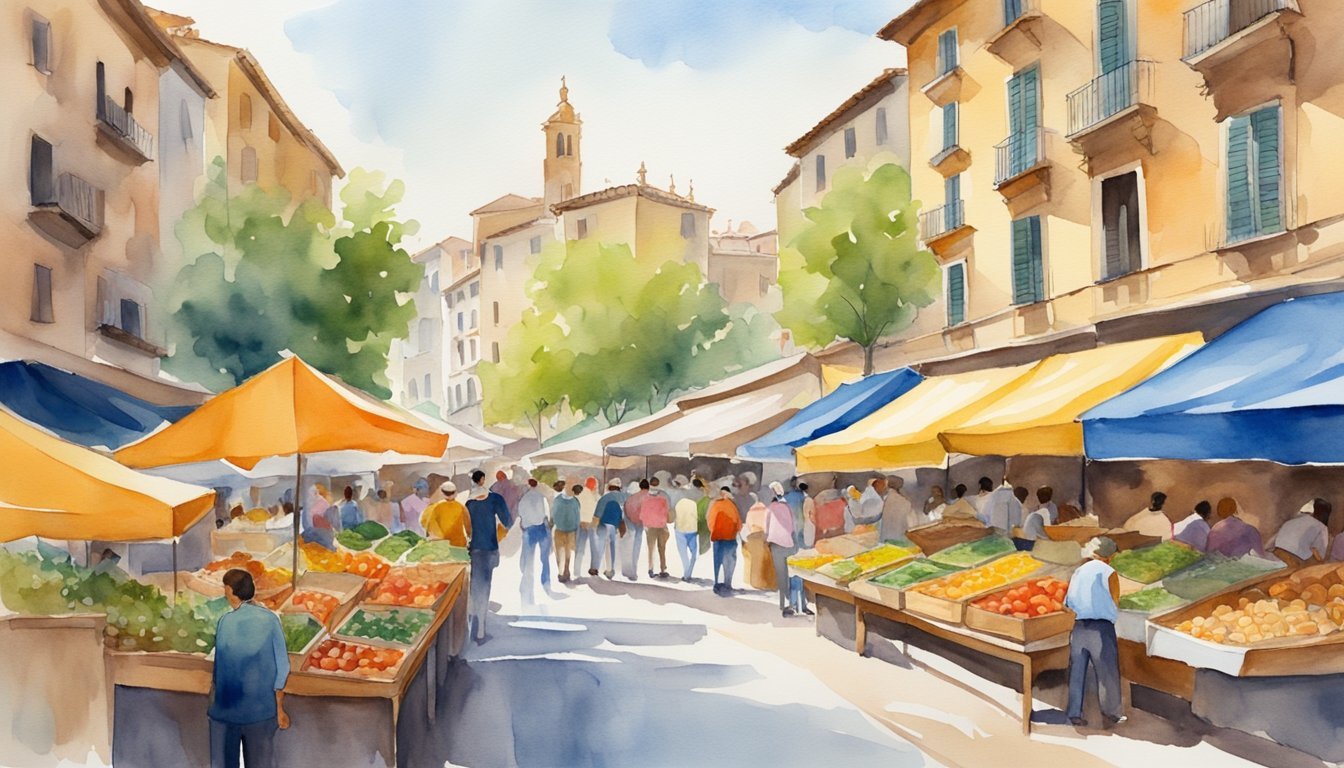Catalonia: History and Identity
Origins and Cultural Heritage
Catalonia is a region with a rich history and cultural heritage, dating back to the Middle Palaeolithic era. Its location in the northeastern part of the Iberian Peninsula, bordered by France and Andorra to the north, and the Mediterranean Sea to the east, has significantly influenced its identity [1]. With the presence of Iberians and early Greek colonies, Catalonia later became a part of the Roman Empire [2].
The region was also a part of the Crown of Aragon, which played a crucial role in shaping its culture and political development [3]. Catalonia’s distinct identity has persevered throughout the centuries, from the dynastic union of Aragon and Castile to modern times.
The Path to Autonomy
Catalonia had a period of increased political power and autonomy during the Second Spanish Republic (1931-1939) [4]. Unfortunately, the Spanish Civil War resulted in the dictatorship of Francisco Franco, leading to the suppression of Catalan language and culture [5]. Following Franco’s death in 1975, Catalonia’s path to autonomy resumed with the establishment of its Parliament and the approval of its Statute of Autonomy in 1979 [6].
Modern Political Developments
In recent years, Catalan nationalism and the push for independence have become prominent political issues. The Catalan independence referendum in 2017 resulted in tensions between the region and the Spanish government in Madrid—. In response to the referendum, the Spanish government imposed direct rule over Catalonia and dissolved its Parliament [7].
Despite political challenges, Catalonia, with its capital being Barcelona, remains one of Spain’s wealthiest regions and boasts a vibrant culture and unique history. The autonomous community is composed of four provinces: Girona, Barcelona, Tarragona, and Lleida [8].
Economic and Cultural Vibrancy

Contributions to Tourism and Economy
Catalonia, a region in northeastern Spain, is an economic powerhouse and a popular tourist destination. Besides its largest and most famous city, Barcelona, the region has other attractive tourist spots like the Costa Brava and the Costa Daurada, known for their beautiful beaches. Tourism significantly contributes to the local economy, as travelers from around the world flock to Catalonia to experience its rich culture, stunning natural landscapes, and distinctive architecture.
The region’s economy relies heavily on services, accounting for around 75% of its GDP. Catalonia also thrives in sectors such as agriculture, particularly wine, olive oil, and corn production. Due to its location along the Mediterranean coast, it enjoys a favorable climate for cultivating various crops. The area surrounding the Llobregat River is one of the most industrialized and dynamic agricultural regions in Catalonia.
As one of Spain’s richest areas, Catalonia boasts a unique blend of economic diversity and cultural vibrancy that sets it apart from other regions.
Language, Traditions, and Lifestyle
Catalonia takes pride in its distinct linguistic and cultural identity. The local population speaks Catalán alongside Spanish, with both languages enjoying co-official status. Catalan is used in daily life, schools, and official communication, contributing to the region’s strong sense of identity, history, and belonging.
Catalonian traditions and lifestyle reflect the region’s Mediterranean roots and the influence of various peoples who settled here throughout history. Family plays a central role in Catalan society, and its people appreciate the importance of strong social bonds. Communities often gather in town squares, beaches, or parks to socialize and celebrate events, mingling with locals and visitors alike in a convivial atmosphere.
Catalonia’s cultural attractions are diverse and fascinating, ranging from ancient churches and medieval towns to modern architectural wonders and world-class cuisine. In addition to its famous landmarks like the Sagrada Familia in Barcelona, the region preserves its heritage by organizing numerous festivals, such as sardana dances and castell-building contests, projects that showcase both its traditional roots and ongoing creativity.
In summary, the economic and cultural vibrancy of Catalonia makes the region a uniquely appealing destination for travelers, while also offering opportunities for growth and prosperity to its population.

